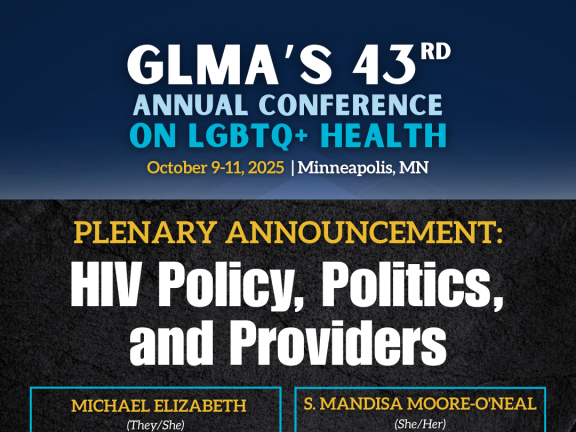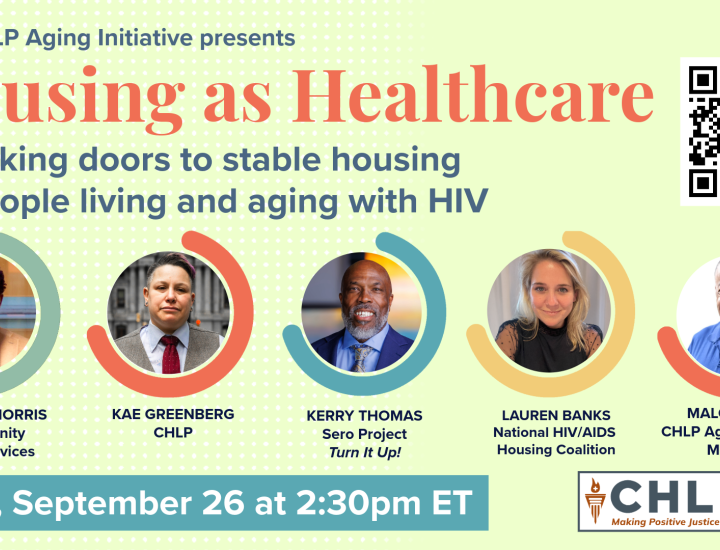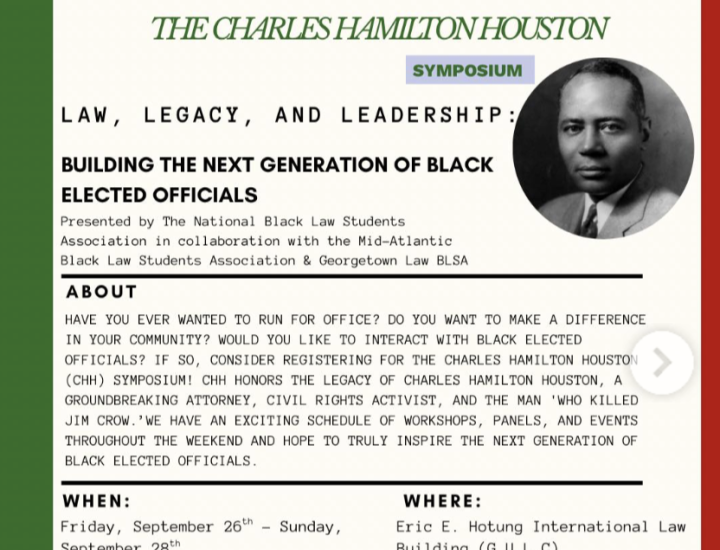GLMA: Annual Conference on LGBTQ+ Health

CHLP Executive Director S. Mandisa Moore-O'Neal and Staff Attorney Kae Greenberg will be presenting at GLMA's 43rd Annual Conference on LGBTQ+ Health in Minneapolis, Minnesota, on October 9.
HIV Policy, Politics, and Providers
Opening Plenary
11:00am CT
Presenters:
- S. Mandisa Moore-O'Neal, Executive Director, CHLP
- Michael Elizabeth, Director of Public Health Policy, Equality Federation
- Jirair Ratevosian, Associate Research Scientist, Duke University Global Health Institute
- Adrian Shanker, Policy Leader, Consultant, Writer, Researcher, Shanker Strategies LLC
This plenary will feature experts discussing how policy, politics, and the actions of healthcare providers influence HIV outcomes within LGBTQ+ communities. It will explore topics such as criminalization, funding restrictions, and stigma, which collectively impact prevention, access, and health outcomes.
Riding the Storm: The Shifting Legal Landscape and Its Impact on Trans People Living and Aging With HIV
12:15pm CT
Presenters:
- Kae Greenberg, CHLP
- Dr. Betsy M Collins, MD, MPH Emory School of Medicine
Currently, the majority of people living with HIV are over the age of 50, with that percentage set to grow to 70% in 2030. Transgender people, particularly Black and brown transgender women, are disproportionately likely to be living with HIV. Recent state laws and executive orders have targeted gender affirming care for transgender individuals. While seemingly narrowly aimed at controlling the health and bodily autonomy of a marginalized population representing approximately 1% of Americans, these laws represent the vanguard of coordinated attacks upon bodily autonomy and public health. Cuts to HHS have decimated HIV prevention services and begun the dissolution of the Administration for Community Living. Funding for treatment, funding for studies about treatment, and Ryan White funding itself are on the chopping block. It is against this backdrop that medical practitioners are struggling to provide high-quality care to trans people living and aging with HIV. This panel will explore what it is like to provide medical services to this population right now, and also advise on best practices for working with this population. Panelists will also provide guidance as to what trans folks living and aging with HIV can do to protect themselves and their decision-making capacity during this hostile time.
The Threat Has Always Been Here: Seeing Stigmatization and the Weaponization of Health Data through the Lens of HIV
3:00 pm CT
Presenters:
- Kae Greenberg, CHLP
- Benjamin Brooks, Whitman Walker
- Kelly Flannery, PWN
This panel will discuss the evolving legal, policy, and ethical landscape about the dangers of porous and inconsistent safeguards surrounding sensitive health information, looking through the lens of HIV surveillance for insights on how state and federal actors leverage public health reasoning to police minoritized communities. For decades, mandatory disease reporting requirements have led to the collection and analysis of HIV-related information that is then shared across jurisdictions without uniform legal protections in place to prevent patient data from being weaponized against people living with HIV. This has undermined trust between PLHIV and our medical and public health infrastructure, jeopardizing public health by alienating marginalized people away from care. The importance of uniform health data privacy protections has rightfully garnered increased attention in the face of the hyper-regulation and -criminalization of gender affirming care and abortion. Lessons from PLHIV-led advocacy on HIV surveillance provide key insight into these concerns of public health and provider collaboration with the criminal legal system. Panelists will unpack the public health rationale for disease reporting MHS and discuss its legal and ethical issues by drawing from the groundswell of PLHIV-led advocacy targeting public health practices that harm their communities. Participants will learn the realities of HIV criminalization in the United States, the advocacy movement formed to dismantle it, and engage with principles to better protect the health, dignity, and bodily autonomy of PLHIV and people affected by HIV.


